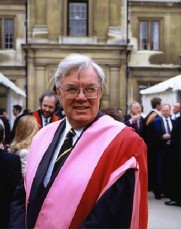News
Professor Sir Bob Hepple: 1934 - 2015
It is with great sadness that the Council has learned that Professor Sir Bob Hepple died on 21 August 2015.
[caption id="" align="alignright" width="181"] Image credit: with thanks to University of Cambridge Squire Law Library[/caption]
Image credit: with thanks to University of Cambridge Squire Law Library[/caption]
An eminent legal scholar, Sir Bob became a Council member in 2000, and chaired the Council’s Working Party on behavioural genetics in 2002. In 2003, he was appointed Chair of the Council, and during his five year tenure oversaw the publication of several influential Council reports, including on animal research and critical care decisions in neonatal medicine.
In 2007, he chaired the Council’s Working Party on the forensic use of bioinformation. The report recommended a change to current government policy in England and Wales of indefinitely storing all DNA samples taken when an individual is arrested, even if charges are never brought. The recommendation was endorsed by the European Court of Human Rights in a landmark ruling in 2008.
Sir Bob was an inspirational scholar, intellectual and activist. He was committed to standing up for what was right and combined his academic leadership with public service, both in formal offices and as a campaigner. He ensured that the Council tackled important topics and had the courage to take on controversial issues. He is fondly remembered and sorely missed.
Read a biography of Professor Sir Bob Hepple published by the University of Cambridge.
[caption id="" align="alignright" width="181"]
 Image credit: with thanks to University of Cambridge Squire Law Library[/caption]
Image credit: with thanks to University of Cambridge Squire Law Library[/caption]An eminent legal scholar, Sir Bob became a Council member in 2000, and chaired the Council’s Working Party on behavioural genetics in 2002. In 2003, he was appointed Chair of the Council, and during his five year tenure oversaw the publication of several influential Council reports, including on animal research and critical care decisions in neonatal medicine.
In 2007, he chaired the Council’s Working Party on the forensic use of bioinformation. The report recommended a change to current government policy in England and Wales of indefinitely storing all DNA samples taken when an individual is arrested, even if charges are never brought. The recommendation was endorsed by the European Court of Human Rights in a landmark ruling in 2008.
Sir Bob was an inspirational scholar, intellectual and activist. He was committed to standing up for what was right and combined his academic leadership with public service, both in formal offices and as a campaigner. He ensured that the Council tackled important topics and had the courage to take on controversial issues. He is fondly remembered and sorely missed.
Read a biography of Professor Sir Bob Hepple published by the University of Cambridge.
Share